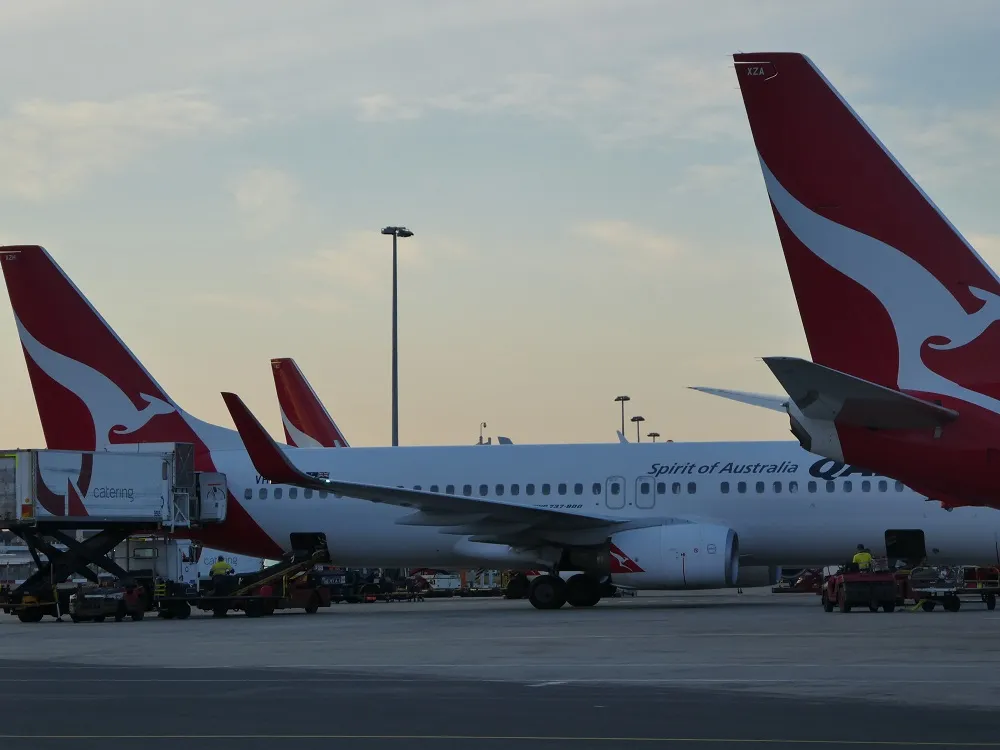
Lobby group calls for pre-clearance on Australia-New Zealand flights.
Sep 29, 2017

A lobby group is advocating for the implementation of a pre-clearance system for flights between Australia and New Zealand. This initiative aims to streamline border processes, allowing travelers to undergo customs and immigration checks before boarding their flights. Proponents argue that pre-clearance would enhance security and efficiency, reducing congestion at airports upon arrival. The system would also align with similar arrangements in place between other countries, potentially boosting tourism and trade. The group emphasizes the benefits of a smoother travel experience, urging government authorities to consider the proposal for the future of trans-Tasman travel.
As international travel resumes and tourism rebounds, the call for a pre-clearance system on flights between Australia and New Zealand is gaining momentum. A prominent lobby group is advocating for this initiative to streamline the travel process, enhance security, and boost economic ties between the two nations. This article explores the implications of pre-clearance for travelers, airlines, and the economy.
Understanding Pre-Clearance
Pre-clearance is a system that allows travelers to go through customs and immigration checks before boarding their flights. This process can significantly reduce waiting times upon arrival, making the travel experience more efficient. For Australia and New Zealand, implementing pre-clearance could mean shorter queues at airports and a more seamless transition for passengers.
Benefits of Pre-Clearance on Australia-New Zealand Flights
There are several key benefits to establishing a pre-clearance system for flights between Australia and New Zealand:
| Benefit | Description |
|---|---|
| Enhanced Traveler Experience | Travelers can enjoy a smoother arrival process with customs and immigration checks completed before departure. |
| Increased Security | Pre-clearance allows for more thorough security checks, reducing the risk of illegal activities. |
| Boost to Tourism | With reduced wait times and a more efficient process, more tourists may choose to visit both countries. |
| Economic Benefits | A streamlined travel process can lead to increased trade and tourism, positively impacting both economies. |
Economic Impact of Pre-Clearance
Implementing pre-clearance could have significant economic implications for both Australia and New Zealand. By making travel more accessible, both countries could see an uptick in tourism revenue. The lobby group argues that a more efficient travel process could lead to increased business travel, which is vital for the economies of both nations.
Moreover, the tourism industry, which has been hit hard by the pandemic, could benefit immensely from the introduction of pre-clearance. More tourists would likely lead to greater spending in local economies, supporting jobs in hospitality, retail, and transportation.
The Role of Airlines
Airlines play a crucial role in the implementation of pre-clearance. They must collaborate with government agencies to ensure that the necessary infrastructure and protocols are in place. Additionally, airlines can benefit from pre-clearance by offering a more attractive travel option to passengers, possibly increasing their customer base.
Furthermore, airlines could use marketing strategies emphasizing the advantages of pre-clearance. Passengers would likely appreciate the convenience and efficiency, making it a selling point for airlines operating Australia-New Zealand flights.
Challenges to Implementation
While the benefits of pre-clearance are clear, there are challenges to its implementation. One major hurdle is the need for investment in infrastructure. Airports would need to establish dedicated pre-clearance facilities, which could be costly and time-consuming.
Additionally, there would be logistical challenges regarding staffing and training customs and immigration officials to operate pre-clearance checkpoints. Coordination between the Australian and New Zealand governments would also be essential to create a cohesive system that meets both nations' legal and regulatory requirements.
Public Opinion and Support
The lobby group's call for pre-clearance is gaining traction among the public. Many travelers express support for a system that promises to make their journeys more efficient and comfortable. Surveys indicate that a significant percentage of travelers would prefer pre-clearance if it meant shorter wait times and fewer hassles upon arrival.
Moreover, tourism operators and businesses reliant on international travelers are backing this initiative. They understand that a pre-clearance system could lead to a resurgence in travel between the two countries, fostering economic growth and stability. The potential for increased tourism is particularly appealing in the wake of the pandemic's impact on the industry.
Looking Ahead
As discussions around pre-clearance continue, stakeholders from both Australia and New Zealand are encouraged to consider the long-term benefits of such a system. By investing in a pre-clearance program, both nations can strengthen their ties, promote tourism, and create a more efficient travel experience for all.
In conclusion, the call for pre-clearance on Australia-New Zealand flights presents an opportunity for both countries to enhance their travel infrastructure and boost their economies. With the support of travelers, airlines, and businesses, this initiative could pave the way for a more prosperous future in international travel.
Related Articles

Explore Thailand: The Best Islands to Visit for Paradise, Adventure, and Relaxation

The Ultimate Guide to the Best Islands in Thailand for Your Next Getaway

Do babies need passports? How to get a passport for a newborn

How to get a U.S. passport fast: here’s how to expedite the process

What is Mobile Passport Control: 5 reasons why you should use it

SENTRI vs. Global Entry: A detailed guide

Do you need a passport to go to the Bahamas? Let’s find out

Do you need a passport to go to Mexico? A detailed guide

Do you need a passport to go to Canada? We got the answer

Do You Need a Passport for a Cruise: An Essential Travel Guide

Booster Seat Requirements: All the Rules to Follow in Your Rental Car

What Are the World’s Most Powerful Passports, and How Does Yours Rank?

How to Take a Passport Photo at Home: A Helpful Guide

You've got to have heart! Southwest's new livery

Your opinion: Should water be free on low cost carriers?

Young women bolder than guys as solo travellers
